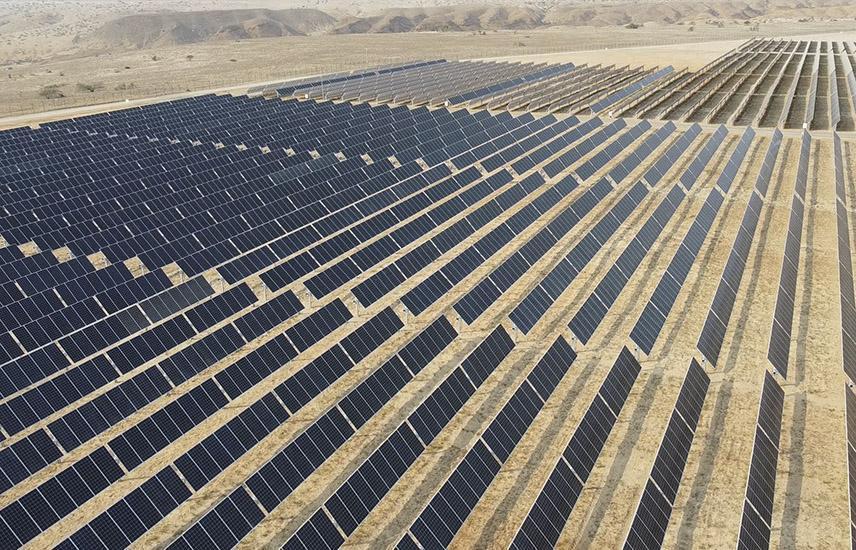Africa-Press – Botswana. Tshepiso Masilonyana of Botswana Climate Change Network has summed it up thus: “This decision sets a dangerous precedent, encouraging other major polluters to deprioritise their climate commitments and reversing years of progress”
The United States’ decision to halt financial aid for global climate initiatives has dealt a huge blow to Botswana solar energy ambitions.
The move – which includes withdrawing USAID funding and pulling out of the Paris Agreement – threatens to derail Botswana’s renewable energy plans and broader climate mitigation efforts.
Despite contributing the least to global emissions, Africa remains one of the continents most affected by climate change.
The Botswana Climate Change Network (BCCN), a leading advocate for climate justice, has voiced deep concerns about the impact of this decision on the country’s energy sector and sustainable development.
Renewable energy projects
The Programme Officer of BCCN, Tshepiso Masilonyana, has warned that halting USAID support will seriously hinder Botswana’s ability to combat energy poverty and develop innovative, sustainable solutions to climate challenges.
“The Trump administration’s decision to freeze USAID funding is a huge blow to renewable energy efforts across Africa, particularly in Botswana,” he said in an interview. “The Power Africa initiative, which has been a key driver of renewable energy projects in Botswana, now faces major uncertainty.”
USAID has played a crucial role in the Power Africa initiative, which seeks to expand renewable energy sources and reduce reliance on fossil fuels. Botswana has been a primary beneficiary of two major projects under this initiative: the mega solar project shared with Namibia and the Roof Top Solar project.
A regional hub
Masilonyana warned that both projects now face serious risks due to funding shortages and loss of technical assistance.
“The mega solar project, one of Africa’s most ambitious renewable energy initiatives, was set to generate up to 5,000 megawatts of electricity in Botswana and Namibia,” he explained.
“It was a collaborative effort involving USAID Power Africa, the governments of Botswana and Namibia, the African Development Bank, and other stakeholders.
“This initiative aimed to position Botswana as a regional hub for solar energy, supplying clean power domestically and exporting surplus to the Southern Africa Power Pool (SAPP).”
Investor uncertainty
The Power Africa programme has been instrumental in providing technical expertise, facilitating private sector investment, and shaping policy development. Its withdrawal could result in project delays, investor uncertainty, and difficulties in securing large-scale capital investments.
Beyond Botswana’s solar energy ambitions, the Trump administration’s decision to exit the Paris Agreement has broader consequences for global climate efforts. Masilonyana described it as a “serious setback” for countries like Botswana, which are already vulnerable to climate change.
“As a civil society organisation committed to climate justice, we are deeply concerned about the implications of this decision,” he said. “For African nations, climate change is not a distant threat; it is a present and worsening crisis.
Dangerous precedent
“The US withdrawal is not just abdication of responsibility; it is a betrayal of the people whose lives are most at risk,”
Masilonyana pointed out that while the Paris Agreement is not perfect, it represents a global commitment to reducing emissions and supporting adaptation efforts in developing nations.
Because the US has historically played a key role in funding climate adaptation programmes, its departure threatens to disrupt crucial financial flows that developing nations, including Botswana, rely on to combat climate change.
Alternative funding
“This decision sets a dangerous precedent, encouraging other major polluters to deprioritise their climate commitments and reversing years of progress,” Masilonyana noted.
“Africa contributes less than 4% of global emissions, and Botswana less than 0.1%, yet our continent faces the harshest consequences of climate change.
“The US, which is responsible for 17% of global emissions, walking away from the Paris Agreement undermines Africa’s ability to mitigate the damage caused by pollution we did not create.”
Despite these challenges, Masilonyana urged African leaders to remain committed to their climate goals and seek alternative funding.
For More News And Analysis About Botswana Follow Africa-Press






